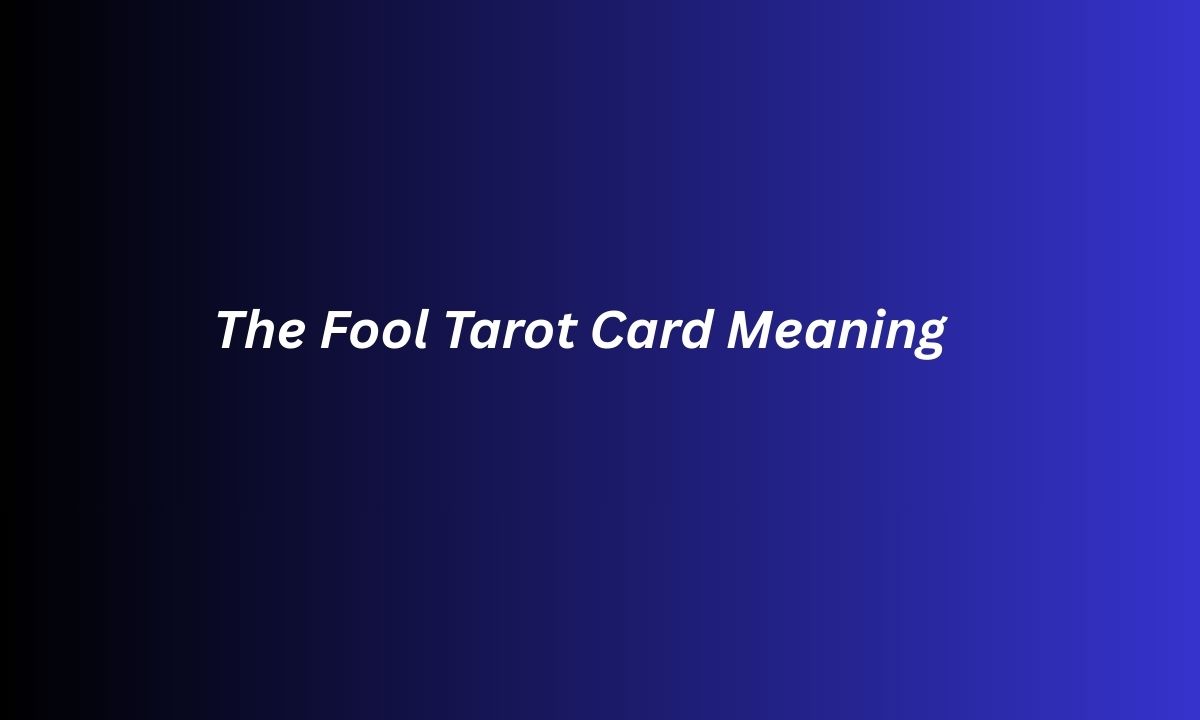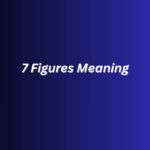The Fool tarot card meaning has intrigued readers for centuries, symbolizing new beginnings, innocence, and an openness to life’s unfolding journey. This card often reflects a spirit of adventure and trust, encouraging us to embrace possibilities without fear.
When interpreting the Fool, readers consider not only its placement in a spread but also its connection with life lessons, potential risks, and personal growth. It emphasizes both the freedom of choice and the responsibility of understanding the unknown.
More than just a mystical symbol, the Fool tarot card meaning resonates with people in everyday life. It mirrors moments of change, decisions that shape the future, and the courage needed to step into the unfamiliar with optimism and faith.
The Fool Tarot Card Meaning
The Fool is the very first card of the Major Arcana in tarot, numbered either as 0 or, in some decks, as the final card. Its placement reflects infinite potential—zero represents both nothing and everything, suggesting boundless possibilities. The imagery usually shows a young figure standing at the edge of a cliff, holding a small bundle, with a dog at their side. This figure embodies curiosity, adventure, and the leap of faith that life often demands.
In readings, the Fool represents fresh starts, untapped potential, and the freedom of self-expression. It can signify a new journey, a bold decision, or the courage to take risks without being tied down by fear. However, it also carries cautionary undertones: while enthusiasm is valuable, impulsive actions without awareness may lead to missteps. Thus, the Fool reminds us to embrace opportunities with both open-mindedness and mindfulness.
Spiritually, the Fool symbolizes innocence and trust in the universe. It invites individuals to release the burdens of past experiences and step forward with pure intent. On a psychological level, it speaks to the human need for exploration and growth, encouraging us to move beyond comfort zones and embrace the vast unknown with humility and courage.
Symbolism of the Fool Card
The symbolism in the Fool tarot card is layered with meaning. The cliff represents the precipice of the unknown—moments in life where decisions carry risk but also great potential. The small bag suggests that everything essential is already within us, emphasizing self-reliance and inner strength.
The white rose often seen in the Fool’s hand symbolizes purity and freedom from corruption, while the dog represents loyalty, instinct, and guidance along the journey. Together, they illustrate that even when stepping into uncertainty, companionship and inner wisdom can provide grounding.
The sun shining overhead is another key symbol, radiating optimism, illumination, and divine energy. Its presence ensures that the Fool’s journey, though uncertain, is blessed with light and guidance. These elements combined make the Fool a powerful archetype of new beginnings, risk, and the boundless opportunities that life offers.
Upright Meaning of the Fool
When drawn upright, the Fool signifies opportunities for growth and new experiences. It suggests taking a leap of faith and trusting that the journey ahead, though unpredictable, will be rewarding. This card encourages optimism and the courage to face challenges without overthinking.
In career readings, the upright Fool may indicate a new job, project, or creative endeavor. It suggests that pursuing fresh opportunities can bring long-term fulfillment, even if the path is unconventional. For relationships, it often reflects spontaneous connections, openness, and an adventurous spirit in love.
For personal growth, the Fool upright reminds us of the importance of trusting our intuition. It emphasizes that progress often requires risk and vulnerability, and that remaining too cautious may prevent us from experiencing the richness of life’s adventures.
Reversed Meaning of the Fool
When reversed, the Fool highlights the shadow aspects of naivety and recklessness. It can point to acting without consideration, taking unnecessary risks, or failing to see the bigger picture. This is a warning to slow down and think carefully.
In work or career contexts, the reversed Fool suggests impulsive decisions, lack of preparation, or misplaced confidence. It cautions against rushing into ventures without research. In relationships, it can reveal immaturity, lack of commitment, or unrealistic expectations.
Spiritually, the reversed Fool may signal resistance to growth, denial of lessons, or fear of change. Rather than embracing new opportunities, one might be avoiding them, risking stagnation. However, it also serves as guidance: caution and reflection can help transform impulsive choices into thoughtful actions.
Lessons from the Fool
The Fool teaches us about balance between spontaneity and wisdom. While it celebrates the beauty of beginning anew, it also underscores the value of awareness. Its lessons are timeless: trust the journey, but stay mindful of your steps.
For those seeking direction, the Fool is an invitation to embrace life’s uncertainty without hesitation. It encourages resilience in the face of risk and reminds us that mistakes can become stepping stones toward growth. In essence, it symbolizes the dual nature of freedom—both liberating and challenging.
Ultimately, the Fool is not simply about being careless or naïve; it is about choosing to move forward in faith, guided by hope, courage, and trust. It assures us that even when we don’t have all the answers, the path will unfold.
Exploring Alternatives to “Hiatus Meaning”
The phrase “hiatus meaning” often appears when people want to understand pauses, gaps, or interruptions in time. But there are many professional, polite, and casual alternatives depending on context and tone. Below are refined alternatives:
- Break in activity – Suggests a temporary pause in work or events.
- Interruption – Polite yet professional, used in formal discussions.
- Interval – Neutral and academic, common in scheduling contexts.
- Pause – Simple, casual, and conversational.
- Time off – More personal, used when referring to rest or vacation.
- Intermission – Often used in performance or entertainment settings.
- Recess – Common in education or governance contexts.
- Gap – Neutral, but often implies a short or undefined space of time.
- Suspension – Formal and professional, often used in legal or business settings.
- Break period – Clear and neutral, appropriate for workplace use.
- Respite – Polite and refined, often associated with relief from stress.
- Leave of absence – Professional and HR-related, implying formal permission.
- Downtime – Casual, frequently used in tech or workplace language.
- Interlude – Literary or poetic, often used in creative contexts.
- Lull – Subtle and descriptive, reflecting a quiet pause.
These alternatives highlight how tone and context shape language. For instance, “pause” may suit a casual setting, while “respite” conveys elegance and formality. By choosing wisely, speakers can adapt their communication for clarity, respect, and effectiveness.
Conclusion
The Fool tarot card meaning reflects the beauty of beginnings, the courage to explore the unknown, and the wisdom to balance faith with awareness. Just as the Fool teaches us to embrace change, language also evolves with context. Alternatives to “hiatus meaning” demonstrate how words can adapt to different tones, making communication clearer and more impactful.
Both the Fool and our choice of words remind us that growth often comes from stepping beyond the familiar. By embracing openness—whether in journeys or conversations—we allow life to unfold with richness, possibility, and wisdom.

Elizabeth crafts heartfelt messages for every occasion—anniversary wishes, love notes, prayers, thank-yous, and inspirational greetings—bringing warmth, joy, and connection to your special moments.










